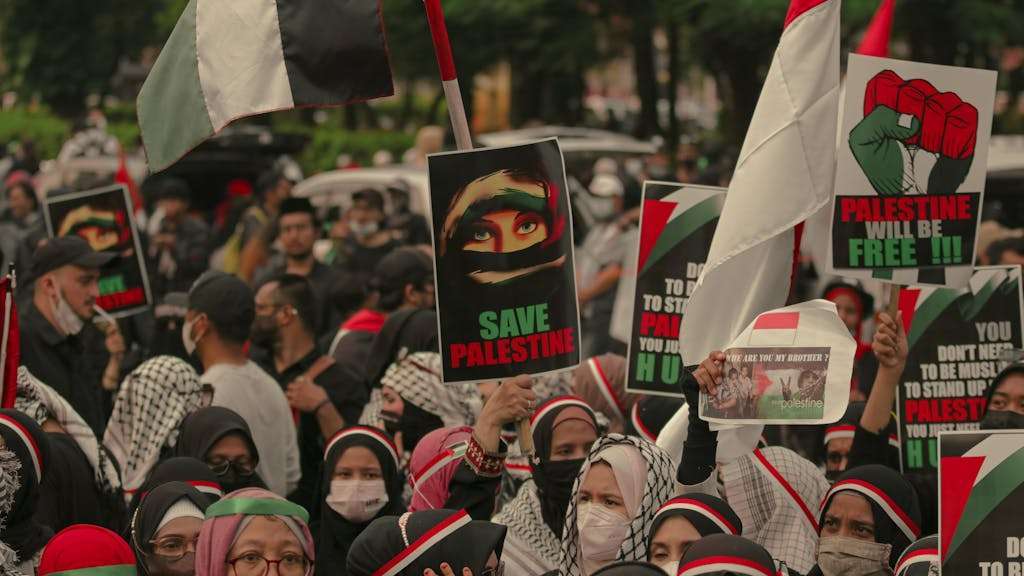Sadaqah means “righteousness” and is a voluntary charity given to please God. Sadaqah also describes a voluntary charitable act towards others, whether through generosity, love, compassion or faith. These acts are not necessarily physical or monetary. Simple good deeds such as a smile, or a helping hand, are seen as acts of sadaqah.
The Prophet Muhammad (peace be upon him) emphasised the benefits of giving Sadaqah in a number of sayings:
Sadaqah extinguishes sin as water extinguishes fire.
Hadith | Tirmidhi
Examples of Sadaqah
It can be everything from an act of kindness to a monetary donation. For example, Sadaqah can be a voluntary donation, helping someone in need, giving a smile, or it can even be removing a harmful object from your path. Aqiqah, Fidya and Kaffarah are also examples of Sadaqah.
Some further examples include:
- Donating money to someone in need
- Making food for others
- Teaching Qur’an
- Smiling at others
- Watering a plant
- Taking care of an animal
- Removing something harmful from someone’s path
While a man was going on a way, he saw a thorny branch and removed it from the way and Allah became pleased by his action and forgave him for that.
Hadith | Sahih al-Bukhari
What does Sadaqah mean?
The literal translation is ‘righteousness’. However, in the modern-day context, it has come to mean ‘voluntary charity’. The word stems from ‘sidq’, which means sincerity. This suggests that Sadaqah is a righteous behaviour, which shows sincerity of faith.
The Impact of your Donations
Giving Sadaqah can help provide crucial medical care that people facing the effects of war and crisis can seek relief in. For example our brothers and sisters in Yemen, Afghanistan, Syria and Palestine.
They also provide livelihoods to thousands of people and communities. This helps to break the poverty cycle and lifting individuals in need into wellbeing.
Your donations are simply transformative – see the impact of your donations here.
Zakat and Sadaqah
Sadaqah is an entirely voluntary charity, that can be performed at any time of year, and any amount can be given. However, Zakat is an obligatory charity due from every Muslim whose total possessions (cash, gold, silver, shares) meet or exceed the nisab threshold on a yearly basis.
Zakat has a number of stipulations regarding the type of assistance it can provide. However, Sadaqah can be used for any project or programme which is of benefit to people. In a number of sayings, Prophet Muhammad (pbuh) emphasised the benefits of giving Sadaqah.

Sadaqah and Sadaqah Jariyah
An important concept within Islam is the idea of Sadaqah Jariyah – an ‘ongoing charity’.
The Prophet Muhammad (peace be upon him) said:
When a person dies, all their deeds end except three: a continuing charity, beneficial knowledge and a child who prays for them.
Hadith | Sahih Muslim
Therefore, many Muslims are eager to give charity which will continue to have benefit to people after their death, and continue to earn them reward.
Sadaqah Jariyah is any charity which continues to have positive effects on a community in the long-term, beyond immediate relief. This includes: building homes, schools and hospitals. Other examples include: installing durable water systems; turning an area of land into a farm which continues to give crops for years to come; helping a poor family start a business which continues generating profit for future generations.
What is the difference between Sadaqah and Sadaqah Jariyah?
Essentially, Sadaqah Jariyah is what today’s international development sector calls ‘sustainable development’. Islam promoted this over 1400 years ago. It encompasses the majority of the sustainable development programmes carried out by both Islamic and other NGOs today.
What is the difference between Sadaqah and Lillah?
Lillah means ‘for Allah’. Lillah is a type of Sadaqah donation, that can be made to an institution, a mosque, orphanage or a hospital.
Similarly to Sadaqah, it is not compulsory. There is no minimum amount and no restriction on who can receive funds.
What are the benefits of Sadaqah?
Sadaqah is a voluntary act of charity. It is given for the sole purpose of pleasing Allah (SWT), without expecting anything in return.
We know that Prophet Muhammad (pbuh) was very generous. He (pbuh) would give his food, money, and belongings to the poor and often letting himself go hungry. In summary, the Prophet Muhammad (pbuh) had impeccable character. Therefore, it is an immense reward in following his exemplary behaviour.
There is not a day upon which the servant awakens but that two angels descend. One of them says: O Allah, repay one who spends in charity! The other says: O Allah, give destruction to one who withholds charity!
Hadith | Sahih al-Bukhari
Why is Sadaqah important in Islam?
Sadaqah not only purifies one’s own wealth, but also helps to establish a flow of wealth in society. Through the good deed of giving, Muslims are bonded together. As well as the economic stability in communities through the distribution of wealth. Therefore, Muslims are instructed by Allah (SWT) to try to give for His sake and spread generosity.
The Prophet Muhammad (pbuh) said:
The believer’s shade on the Day of Resurrection will be his charity.
Hadith | Tirmidhi
Frequently Asked Questions
When should you give Sadaqah?
You can give 1in any amount at any time of the year, it is a voluntary act of charity and worship.
Who is Sadaqah given to?
It can be used for any project or programme which is of benefit to people.
What is the difference between Sadaqah and Zakat?
Sadaqah is an entirely voluntary charity, where any amount can be given at any time of year. However, Zakat is an obligatory charity due from every Muslim whose total possessions (cash, gold, silver, shares) meet or exceed the nisab threshold on a yearly basis.
What is the best way to give Sadaqah?
There are lots of recommended ways, and some great examples have been outlined here in this article. However, this Hadith is very helpful as a guide:
“The most beloved of deeds to Allah are those that are most consistent, even if it is small (in amount).”
Hadith | Bukhari
How many types of Sadaqah are there?
There are countless types you can offer, that can be both monetary as well as more abstract. For example, the time that you donate can be Sadaqah, as well as a smile or even relieving someone of their hardship. The most common types of charity are, to give money to the less fortunate, and to help the less able both physically and mentally.
Can I give Sadaqah to a mosque?
Yes it can be given to a mosque or any charity.
Does Sadaqah increase wealth?
In a famous Hadith narrated by Abu Huraira reported:
“The Messenger of Allah, (peace be upon him), said, “Charity does not decrease wealth, no one forgives another but that Allah increases his honour, and no one humbles himself for the sake of Allah but that Allah raises his status.”
Hadith | Muslim
Many scholars interpret this to describe the way Allah (SWT) restores wealth and even increases it in some way when one gives from what he loves for His (SWT)’s sake.
Can I give Sadaqah when something bad has happened?
When something bad happens you can give Sadaqah. The Messenger of Allah (pbuh) said:
“Give charity without delay, for it stands in the way of calamity.”
Hadith | Tirmidhi

Leave a Reply